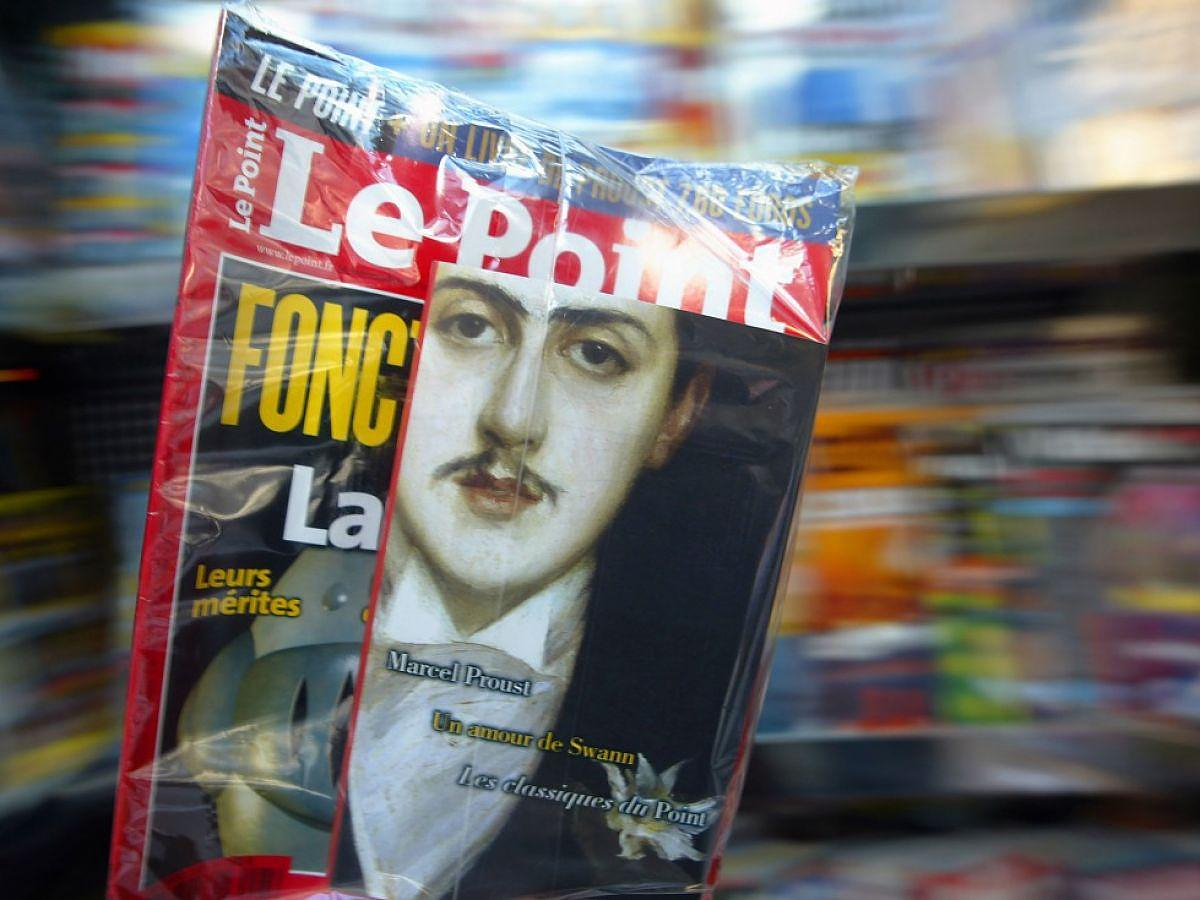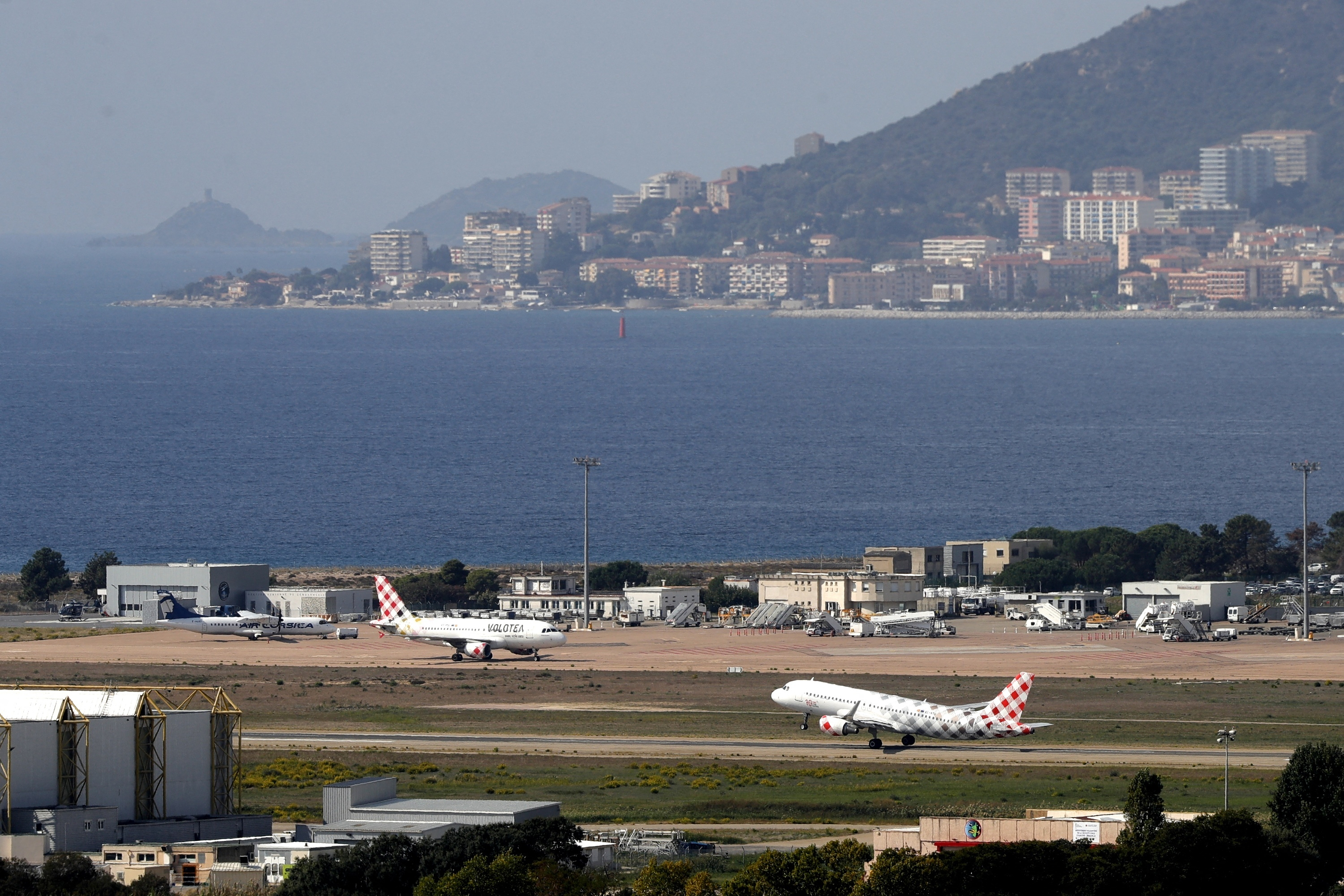Eleven years ago, director Asghar Farhadi sat on the terrace of the Berlin Literature House, cigarette in hand, raspberry tart on the table in front of him. A few months earlier he had been the first Iranian to win the main prize at one of the major festivals at the Berlinale; now he had returned with a scholarship to write a screenplay.
Great things lay ahead of him. A few months later, he would work for “Nader
An easy question, from the safe west. Farhadi had already learned by this point that it was better not to answer directly. A few months earlier, the regime had fired a massive warning shot at its artists for the first time; he went in the direction of film director Jafar Panahi. Cinema is the art from Iran that enjoys the greatest international acclaim; Panahi was sentenced to six years in prison and 20 years' professional ban for "propaganda against the system."
Asghar Farhadi had expressed solidarity with his colleague at the time. Javad Shamaqdari, the head of the state film organization, then gave him a week to take it back, otherwise the filming permit for “Nader
It was the beginning of a decade-long tightrope walk: How far could Farhadi take criticism? To what extent would the international glamor that fell from him on his home country protect him from the mullah hardliners? It wasn't like Farhadi made soft films. Nader and Simin seem to live self-determined and yet only act within the inner prison of the rules of the theocracy. In The Salesman, a woman fails to report a man after being raped for fear of the social consequences, and A Hero criticizes the Iranian justice system. Farhadi's films deal with moral dilemmas in the Islamic Republic and almost inevitably come to a tragic end. In another, freer society, they could turn out very differently.
Many of Farhadi's colleagues have long been in exile. Panahi could have left Iran too, in his new film "No Bear" there is even a scene in which a director (played by Panahi himself) is standing on the border strip between Iran and Turkey and only has to step over to the other side would have to do. He doesn't do it and continues to expose himself to harassment. Like all his films for the last ten years, “No Bear” was created in clandestine fashion.
Farhadi's only non-Iranian film, Open Secret, is also his weakest. “What compels me to return is filmmaking. The food for this is the culture of my country,” Farhadi said at the Literature House at the time. “For me, this stay is not emigration, but a long journey. The mentality of my family and my own are not shaped in such a way that we could live abroad in the long term. Also, the situation in my country requires me to stay there as a filmmaker now. When your child is sick, instead of going upstairs to sleep soundly, you stay by their bedside and hold their hand. That's how many Iranian filmmakers think.”
Since then, repression in Iran has come in waves, depending on the political climate, but overall the pressure on filmmakers has increased. You don't get most of it in the west (do you want to get it?), but every now and then a gap opens up. Like four years ago with Abdolreza Kahani's Delighted, which was due to screen in Toronto but was cancelled. Apparently, the Ministry of Culture had told Kahani that his next film could not be shown in Iran if Delighted was shown in Canada; It's about three Iranian women who laugh at rich men, which the ministry declared "immoral". For the first time, the censorship kraken reached visibly beyond the Iranian borders.
This spring Dariush Mehrjui burst the collar. Mehrjui's masterpiece "The Cow" had already been banned in the Shah's Iran, Mehrjui had gone into exile in France, returned in 1985 and quickly became disillusioned, and the censorship hadn't changed in the Islamic Republic either. Now, on March 6, the now 82-year-old reported with a video on the Internet. "This is the performance permit for my latest film, LA Minor," he exclaimed, holding the document up to the camera. But the Ministry of Culture had informed him that the permit had expired: "You issue judgments like a ghost in the background," he raged. "I can not stand that. I will protest at the ministry. I will not give up until I get my rights."
A month later, 250 film women released a manifesto complaining that "powerful people" in the industry were using their position to "intimidate, threaten, insult, humiliate and attack women". They called for "serious legal consequences for the perpetrators". Many of the signers were nationally known, including Taraneh Alidoosti, the lead actress in Farhadi's Salesman.
The unrest culminated when the Metropol Tower in Abadan, a shopping mall, collapsed on May 23, believed to be due to construction defects caused by corruption. 40 people died, the population protested, the protests spread to other cities, the police cracked down brutally. According to Mani Haghighi – with his films repeatedly at the Berlinale but staying in Iran – the collapse of the tower is seen as a metaphor for the state of the entire country. And so 70 film artists got together and demanded the end of police violence under the hashtag "Put your gun down".
The state responded by arresting two of the signers, Mohammad Rasoulof - winner of the 2020 Golden Bear for But Evil Doesn't Exist - and Mostafa al-Ahmad, a documentarist. A few days later, Jafar wanted to visit Panahi Rasoulof in the notorious Evin prison - and was arrested there himself; he must now serve the long suspended prison sentence. Panahi is said to be in a cell with other prisoners, his wife bringing him medicine; at least a good sign, because tortured people are kept in isolation. Rasoulof was sentenced to one year in prison for his Berlinale film, he too for “propaganda against the system”, al-Ahmed received six years. In the meantime, the director Ali Ahmadzadeh has also been arrested for not having obtained a filming permit for his new film. Directors Majid Barzegar and Mohsen Amir Yousefi were summoned.
Asghar Farhadi, who wanted to stay out, was less and less able to do so. One of his former students reported to him that he had plagiarized her idea on "A Hero"; Farhadi responded with a defamation lawsuit. It was rejected, the lawsuit admitted, the verdict is pending; had Farhadi's counterclaim gone through, the student would have faced flogging. When other demonstrations took place in Abadan last year, Farhadi didn't use the main stage in Cannes to protest and some colleagues - including Rasoulof - expressed frustration, while Haghighi defended him: "Just because you're a good and successful artist, you have to you don't put that extra political burden on yourself."
Don't you have to? When do you have to? Farhadi had already taken a first step out of cover. When three alleged "ringleaders" of other protests were threatened with the death penalty in 2020, he signed the hashtag "No to execution" with the words: "Don't make the sad life of Iranians even more bitter." The three are now serving long prison sentences.
As a reaction to the death of Mahsa Amini, who was arrested by the Iranian "moral police" in mid-September and died under unclear circumstances, there is now another open letter, signed by the filmmaker Shirin Neshat, by Tsar Amir Ebrahimi (just in Cannes Best Actress Award), by Bahman Ghobadi (the most famous Kurdish director) and Ali Abbasi (director of the thriller "Holy Spider" about a serial killer of women in Iran), who call on "all filmmakers worldwide" to speak out against the suppression of the Amini protests; however, all signatories are already in exile.
Finally, Ashar Farhadi has now taken a clear stand. "The demonstrators are demanding fundamental rights that the state has been denying them for years," he says in a video on Telegram. "Society, especially these women, have traveled a hard and painful road to get to this point and have now reached a milestone." will be achieved.” Last week, Farhadi acted as jury president at the film festival in Zurich. It is not known whether he flew back to Tehran from there.

 His body naturally produces alcohol, he is acquitted after a drunk driving conviction
His body naturally produces alcohol, he is acquitted after a drunk driving conviction Who is David Pecker, the first key witness in Donald Trump's trial?
Who is David Pecker, the first key witness in Donald Trump's trial? What does the law on the expulsion of migrants to Rwanda adopted by the British Parliament contain?
What does the law on the expulsion of migrants to Rwanda adopted by the British Parliament contain? The shadow of Chinese espionage hangs over Westminster
The shadow of Chinese espionage hangs over Westminster What High Blood Pressure Does to Your Body (And Why It Should Be Treated)
What High Blood Pressure Does to Your Body (And Why It Should Be Treated) Vaccination in France has progressed in 2023, rejoices Public Health France
Vaccination in France has progressed in 2023, rejoices Public Health France Food additives suspected of promoting cardiovascular diseases
Food additives suspected of promoting cardiovascular diseases “Even morphine doesn’t work”: Léane, 17, victim of the adverse effects of an antibiotic
“Even morphine doesn’t work”: Léane, 17, victim of the adverse effects of an antibiotic Collection of booklet A stalls in March
Collection of booklet A stalls in March Kering expects a 40 to 45% drop in operating profit in the first half
Kering expects a 40 to 45% drop in operating profit in the first half Smartphones, televisions, household appliances… MEPs adopt a “right to repair”
Smartphones, televisions, household appliances… MEPs adopt a “right to repair” Fintechs increasingly focused on business services
Fintechs increasingly focused on business services The standoff between the organizers of Vieilles Charrues and the elected officials of Carhaix threatens the festival
The standoff between the organizers of Vieilles Charrues and the elected officials of Carhaix threatens the festival Strasbourg inaugurates a year of celebrations and debates as World Book Capital
Strasbourg inaugurates a year of celebrations and debates as World Book Capital Kendji Girac is “out of the woods” after his gunshot wound to the chest
Kendji Girac is “out of the woods” after his gunshot wound to the chest The Court of Auditors scrutinizes the management and projects of the Center Pompidou
The Court of Auditors scrutinizes the management and projects of the Center Pompidou Skoda Kodiaq 2024: a 'beast' plug-in hybrid SUV
Skoda Kodiaq 2024: a 'beast' plug-in hybrid SUV Tesla launches a new Model Y with 600 km of autonomy at a "more accessible price"
Tesla launches a new Model Y with 600 km of autonomy at a "more accessible price" The 10 best-selling cars in March 2024 in Spain: sales fall due to Easter
The 10 best-selling cars in March 2024 in Spain: sales fall due to Easter A private jet company buys more than 100 flying cars
A private jet company buys more than 100 flying cars This is how housing prices have changed in Spain in the last decade
This is how housing prices have changed in Spain in the last decade The home mortgage firm drops 10% in January and interest soars to 3.46%
The home mortgage firm drops 10% in January and interest soars to 3.46% The jewel of the Rocío de Nagüeles urbanization: a dream villa in Marbella
The jewel of the Rocío de Nagüeles urbanization: a dream villa in Marbella Rental prices grow by 7.3% in February: where does it go up and where does it go down?
Rental prices grow by 7.3% in February: where does it go up and where does it go down? Europeans: “All those who claim that we don’t need Europe are liars”, criticizes Bayrou
Europeans: “All those who claim that we don’t need Europe are liars”, criticizes Bayrou With the promise of a “real burst of authority”, Gabriel Attal provokes the ire of the opposition
With the promise of a “real burst of authority”, Gabriel Attal provokes the ire of the opposition Europeans: the schedule of debates to follow between now and June 9
Europeans: the schedule of debates to follow between now and June 9 Europeans: “In France, there is a left and there is a right,” assures Bellamy
Europeans: “In France, there is a left and there is a right,” assures Bellamy These French cities that will boycott the World Cup in Qatar
These French cities that will boycott the World Cup in Qatar Football: VAFC supporters are ironic after their descent into National
Football: VAFC supporters are ironic after their descent into National Tennis: Carlos Alcaraz should play in Madrid
Tennis: Carlos Alcaraz should play in Madrid Football: victim of discomfort in the middle of a match in mid-April, Evan Ndicka will resume training with AS Roma
Football: victim of discomfort in the middle of a match in mid-April, Evan Ndicka will resume training with AS Roma Ligue 1: PSG almost champion, OM, shock for the C1… 5 reasons to follow an exciting evening
Ligue 1: PSG almost champion, OM, shock for the C1… 5 reasons to follow an exciting evening


















